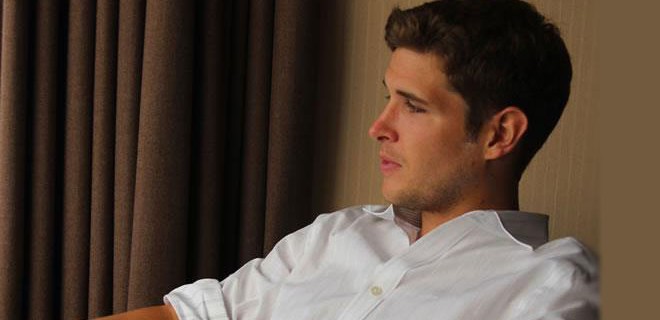Nick Eubanks is a Partner at TrafficSafetyStore.com, America’s #1 e-commerce website for traffic safety products, and the Founder of I’m From The Future, a marketing technology consulting agency based in Philadelphia, PA. When he’s not combing through e-commerce analytics data, Nick can be found racing down the slopes or on the highway. Follow him @nick_eubanks.
Who is your hero? (In business, life, or both.)
My hero in business is Richard Branson. I love how brazen he was in his youth. That raw hunger and failure to accept failure drove him to do things virtually everyone he met told him were impossible. This self-confidence is necessary to build your dreams into reality. My hero in life is not a single individual, and is actually pretty abstract. I look up to people that have overcome deep personal struggles and figured it out as they went along. Even though I graduated from college, these people tend to be those who chose another path instead of school and immediately went to work grinding on their goals because they had to.
What’s the single best piece of business advice that helped shape who you are as an entrepreneur today, and why?
You only fail when you give up. This statement strikes a polarizing chord with almost everyone I’ve ever said it to. You either take it as nonsense common sense, or you understand the deeper meaning it’s meant to evoke.
In some ways it can come off like the line from Ricky Bobby: “If you ain’t first, you’re last.” Literally, it doesn’t make any sense, but figuratively it means the only choice is to win. Either you’re the best or there’s no point in playing.
I’ve needed to remind myself many times as a founder that second place is the first loser — not because I’m insanely competitive (which I am) or a pessimist, but when you’re in a dark spot it’s so easy to give up and get a day job. When you’re first starting out (whether it’s as an engineered venture or still just a side-hustle), there will always be times where the pressure is so high and the money so low that you find yourself doubting whether or not you really have what it takes to be an entrepreneur. This is only magnified by sophisticated competitors, or competitors with more money, more brand recognition or better software. There are two ways to see these scenarios: Give up, go home, and go work for Facebook, or forget self-pity and doubt, put your head down and get it done.
The latter always leads to a brighter place in the end.
What’s the biggest mistake you ever made in your business, and what did you learn from it that others can learn from too?
I’d say it’s an even balance of getting out too soon and staying in for too long.
It comes down to a few critical lessons I’ve learned the hard way. The first was with my first agency, atomni, back in 2008. We started out as a digital marketing firm that quickly realized we were more technical than most. We were able to build tools that were superior to the tools we were trying to use and sell to our customers, so we did that. We built a modest CMS that turned into something meaningful. My business partner at the time and I wanted some extra help so we brought on one of his MBA classmates and gave him a full one-thirds share of the company with no vesting schedule. Then, when I didn’t agree with some of the decisions that were on the table for the business, I had to fight against the majority. So I left. And while I did OK financially, I left a lot on the table — almost entirely from being too proud to stay and fight. I just felt I would be better off.
The flip side, it’s unhealthy to stay at a company when you no longer believe in what you’re doing (or selling) but fear unemployment or failure. You would be amazed how much better you feel about yourself and life in general if you take the plunge. Things will almost always work out.
What do you do during the first hour of your business day and why?
After I go to the gym and shower, I make myself a cup of coffee, open up TweetDeck, and catch up on the tech news from the UK. While it’s not always relevant to what’s going on in the U.S., more times than not I get a jump on the day by learning what’s already making the rounds six hours into the future.
What’s your best financial/cash-flow related tip for entrepreneurs just getting started?
Bite the bullet and hire a part-time bookkeeper, even if only for one or two hours per month. This will make your life 1,000 times easier and April won’t be the worst month of your year. I would also highly recommend opening a new credit card account and using it for every possible business expense, so you have a transactional record of write-offs and expenses to give to your bookkeeper.
Quick: What’s ONE thing you recommend ALL aspiring or current entrepreneurs do right now to take their biz to the next level?
Learn how to build a webpage from scratch. The internet is not going anywhere, and having even a simple knowledge of HTML and CSS makes a huge difference when it comes to designing marketing campaigns and leveraging technology integrations for your business.
What’s your definition of success? How will you know when you’ve finally “succeeded” in your business?
My definition of success is being able to wake up any day of the week and do whatever I want. This could mean getting on a plane, a boat, a bike, or even taking a walk with my dogs. I will have made it when I can 100 percent control my own time.













